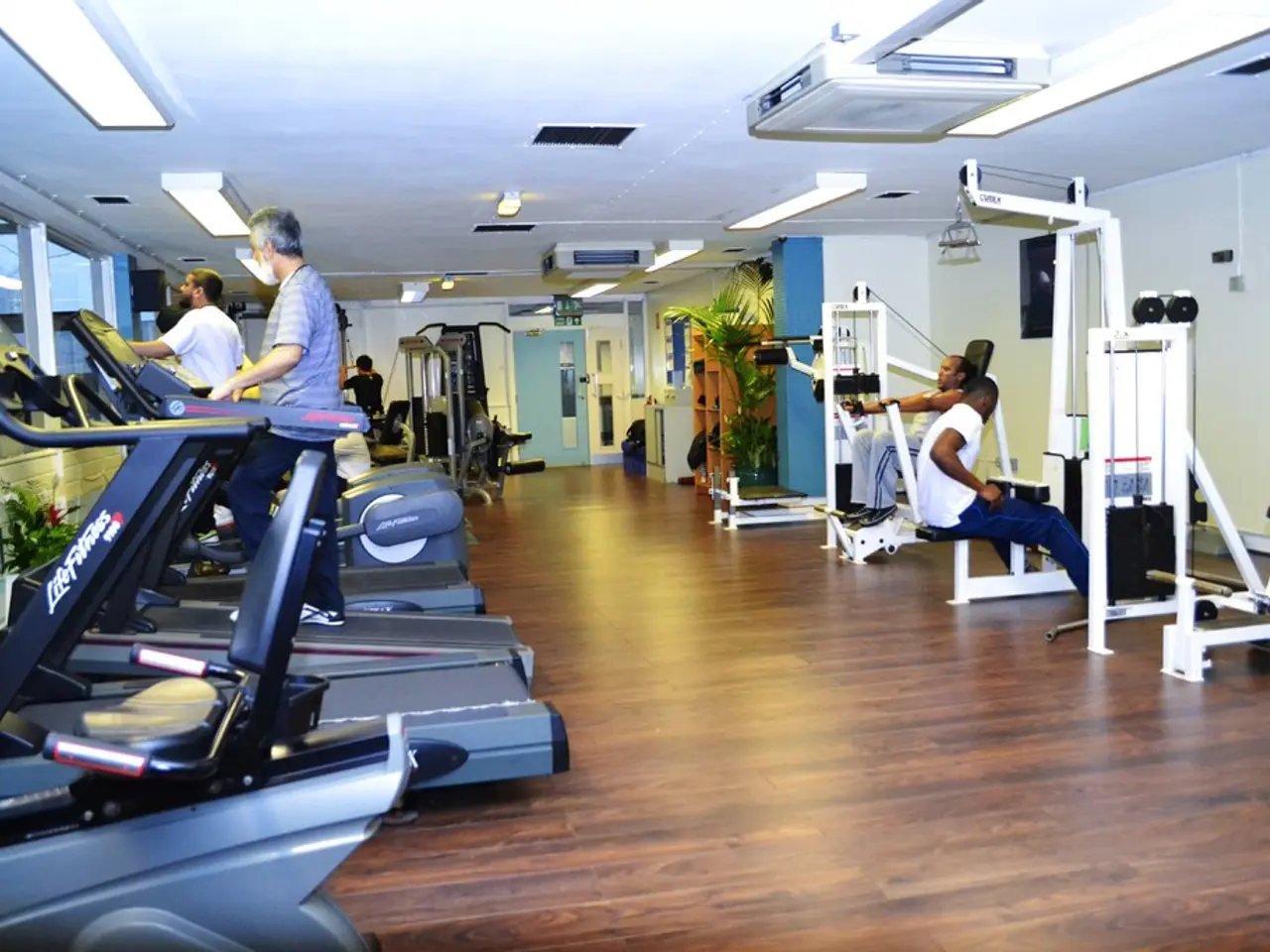Enhancing cognitive abilities through muscle development
Exercise and maintaining muscle mass have been linked to improved cognitive functions in older adults, according to a study published in Life in 2021. This connection is supported by a wealth of recent research, which highlights several specific cognitive benefits of building muscle in older age.
Enhanced Executive Functions
Resistance training, a form of exercise that targets muscles, has been found to enhance executive functions, which are crucial for daily decision-making and maintaining independence. This includes improvements in attention control, working memory, and cognitive flexibility.
Memory Enhancement and Neuroprotection
Strength training can also improve memory performance and offer protection against neurodegeneration. This is particularly beneficial for those with mild cognitive impairment (MCI), as it suggests potential for delaying the progression to dementia.
Biochemical Support
The benefits of building muscle extend to the biochemical level. Exercise has been shown to increase brain-derived neurotrophic factor (BDNF), a protein that promotes synaptic plasticity and neurogenesis in critical brain areas like the hippocampus, directly supporting memory and learning.
Additionally, exercise elevates levels of growth hormone, insulin-like growth factor 1 (IGF-1), and vascular endothelial growth factor, all of which contribute to brain health. Furthermore, exercise reduces inflammatory cytokines, lowering neuroinflammation, a factor associated with cognitive decline.
Muscle Mass and Cognitive Health
Higher lean muscle mass has been linked to better cognitive performance and a lower risk of dementia. This is because muscle tissue produces myokines, anti-inflammatory molecules that cross into the brain, providing neuroprotective effects.
Exercise Prescription
Optimal cognitive benefits arise from resistance training about twice weekly, for 45 minutes per session, over at least 12 weeks. This aligns with the World Health Organization's guidelines for aging populations.
The Role of Choline
Regular exercise and adequate choline intake are two easy ways to build and maintain muscle mass for brain health. Choline is essential for muscle growth and repair, and a deficiency can lead to a 50% reduction in muscle protein synthesis.
Alpha GPC, a choline source, can be found in foods like beef, liver, mushrooms, soy, and is also available in supplemental form. Alpha GPC, which is 41% choline, has been studied to increase growth hormone levels 44 times more than baseline during exercise.
Conclusion
In summary, building and maintaining muscle through resistance training in older adults not only strengthens the body but also significantly supports brain health by improving executive function, memory, and providing neuroprotective biochemical effects that reduce age-related cognitive decline and dementia risk. Regular exercise, coupled with adequate choline intake, offers a simple and effective approach to maintaining cognitive health in older age.
References:
- Life (2021) [Trusted Source]
- JAMA network open (2022) [Trusted Source]
- Clinical nutrition (2020) [Trusted Source]
- International Journal of Molecular Sciences (2021) [Trusted Source]
- Nutrients (2020) [Trusted Source]
- Medicine & Science in Sports & Exercise (2007) [Trusted Source]
- Age (2014) [Trusted Source]
- Nutrients (2020) [Trusted Source]
- Journal of the International Society of Sports Nutrition (2008) [Trusted Source]
- Endocrinology (2018) [Trusted Source]
- Strength training, a part of fitness-and-exercise, can improve memory performance and offer protection against neurodegeneration, which is particularly beneficial for individuals dealing with mental-health issues like mild cognitive impairment (MCI), as it suggests potential for delaying the progression to dementia.
- At the biochemical level, exercise has been shown to increase brain-derived neurotrophic factor (BDNF), a protein that promotes synaptic plasticity and neurogenesis in critical brain areas like the hippocampus, directly supporting memory and learning, thereby supporting overall health-and-wellness and mental-health.




